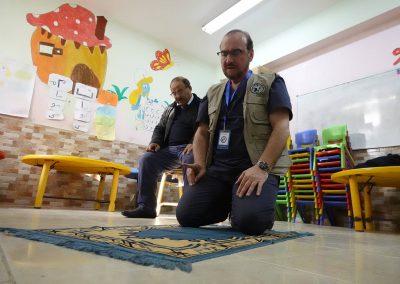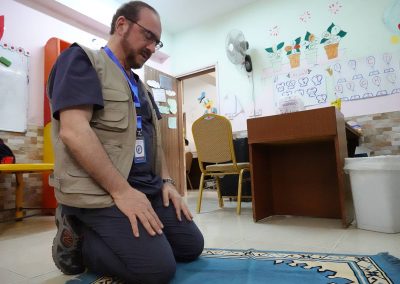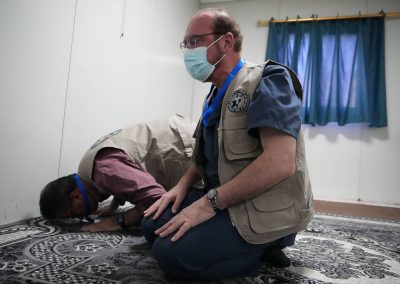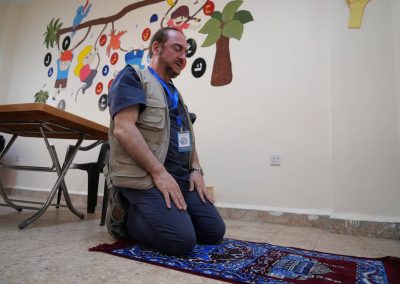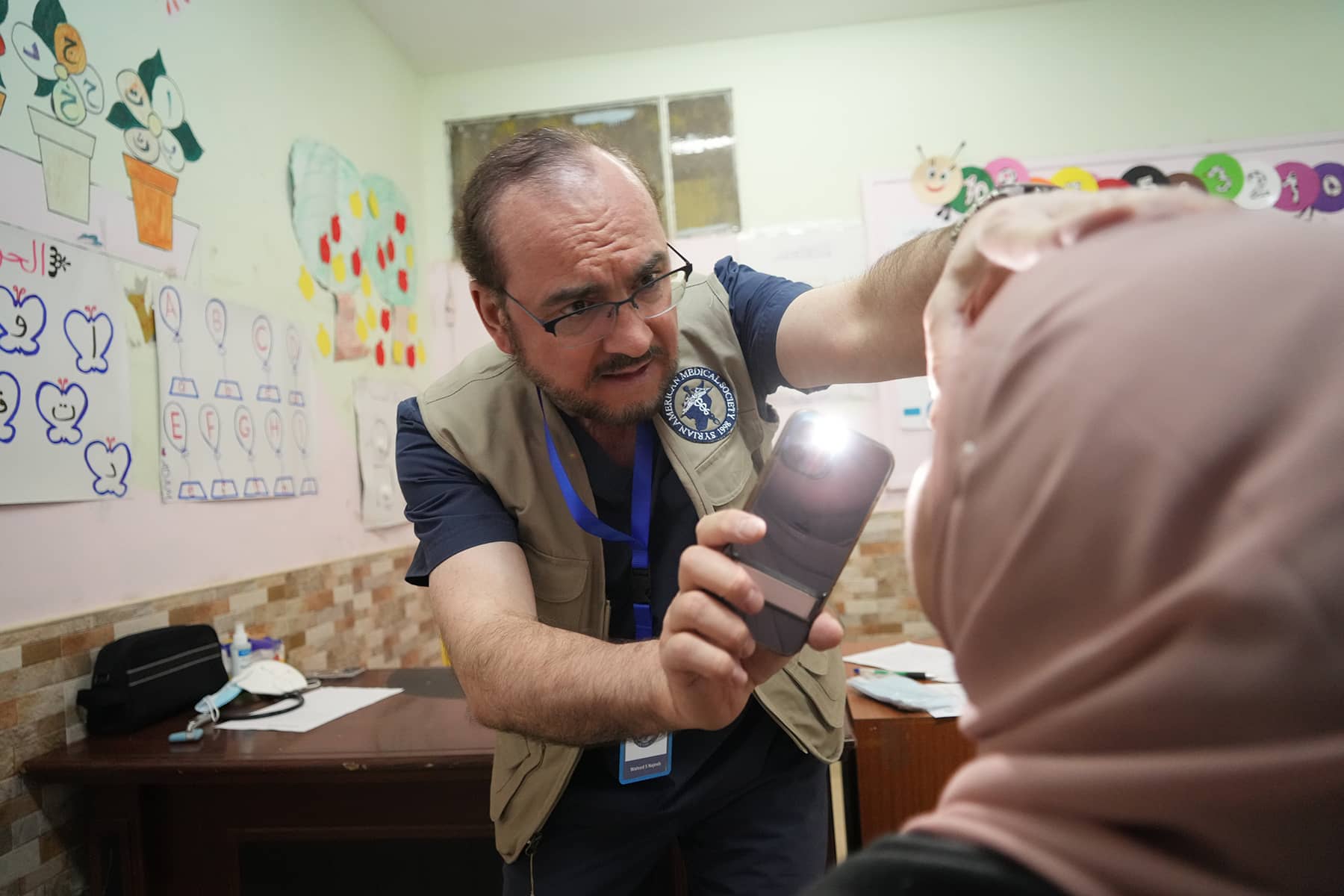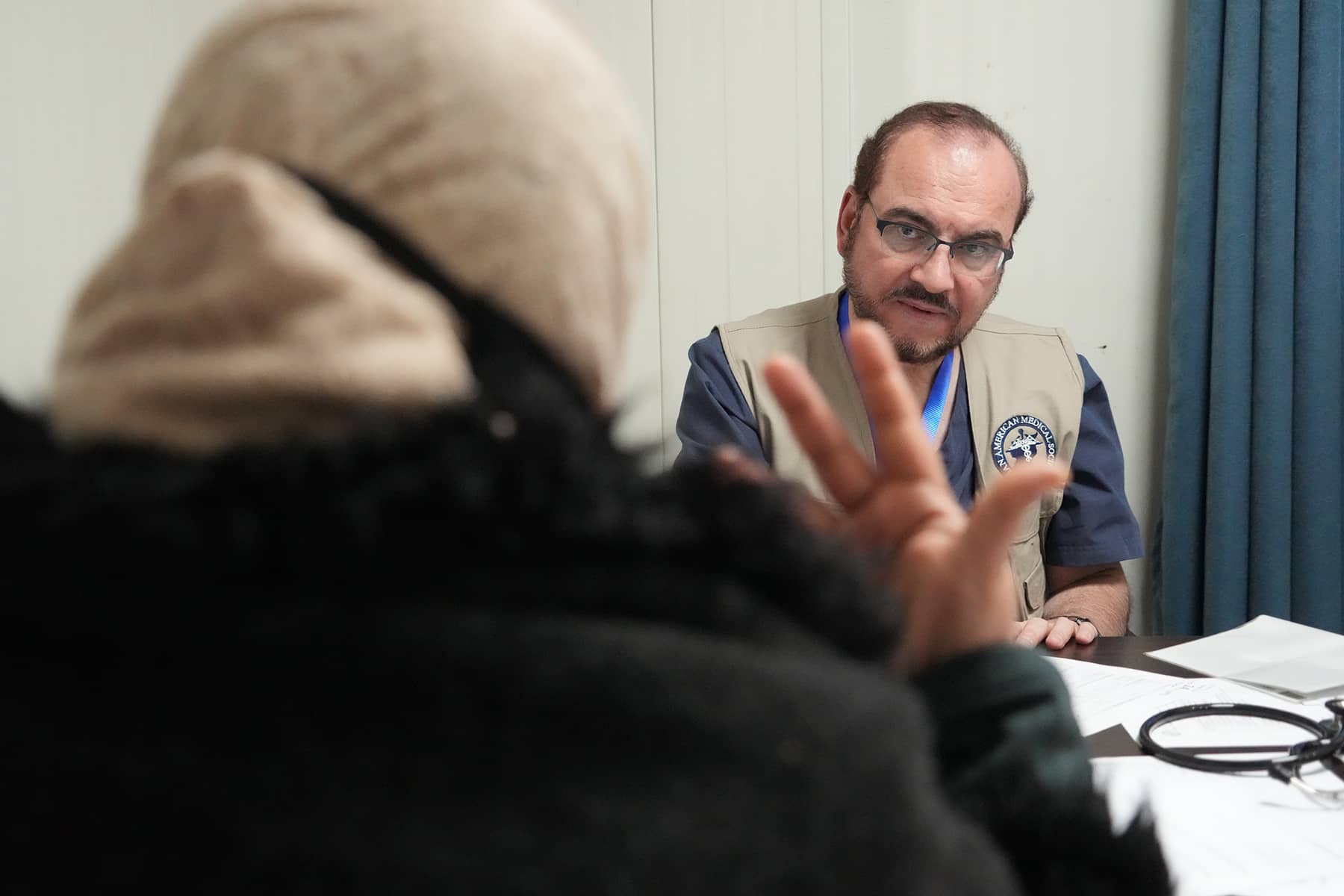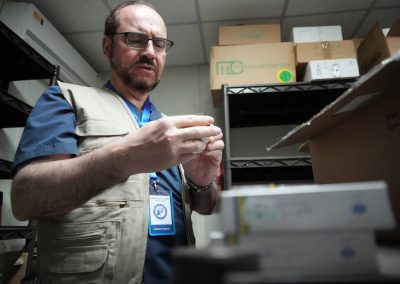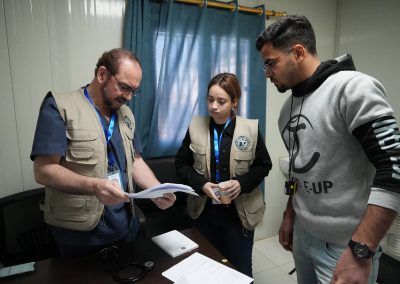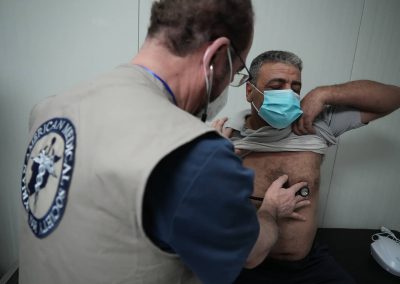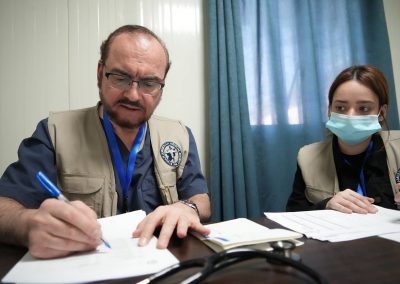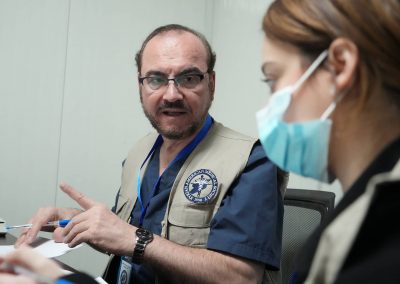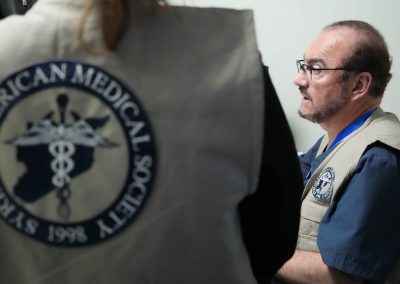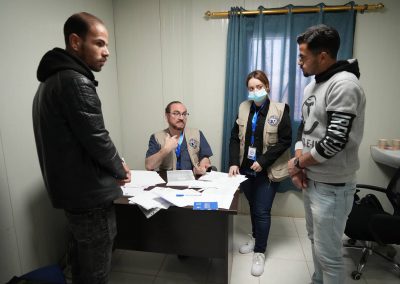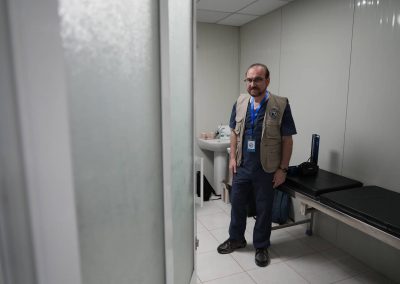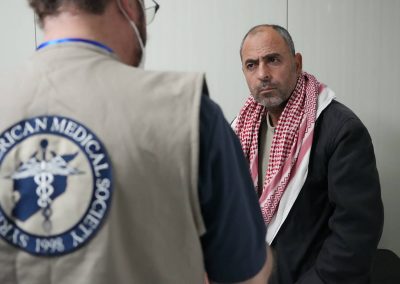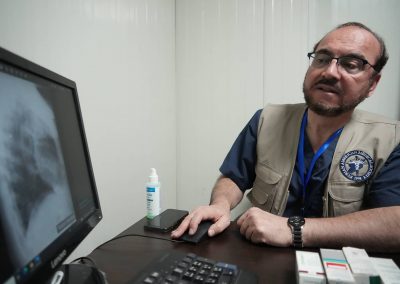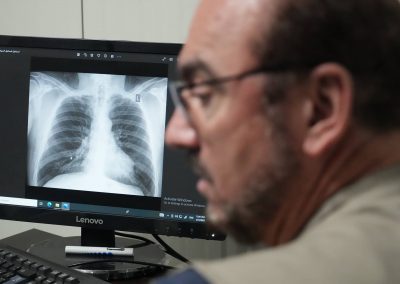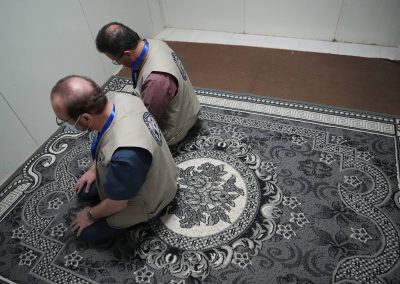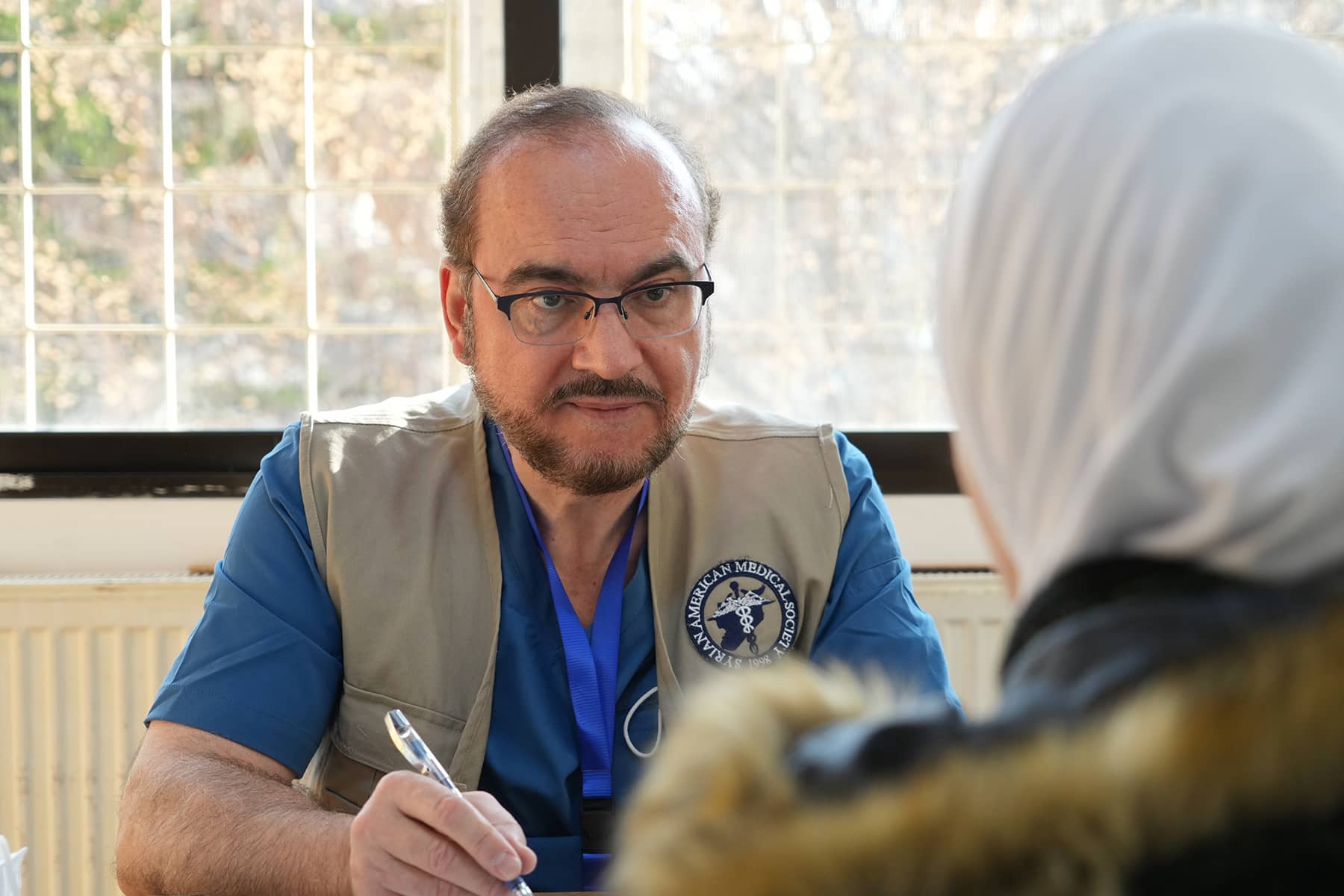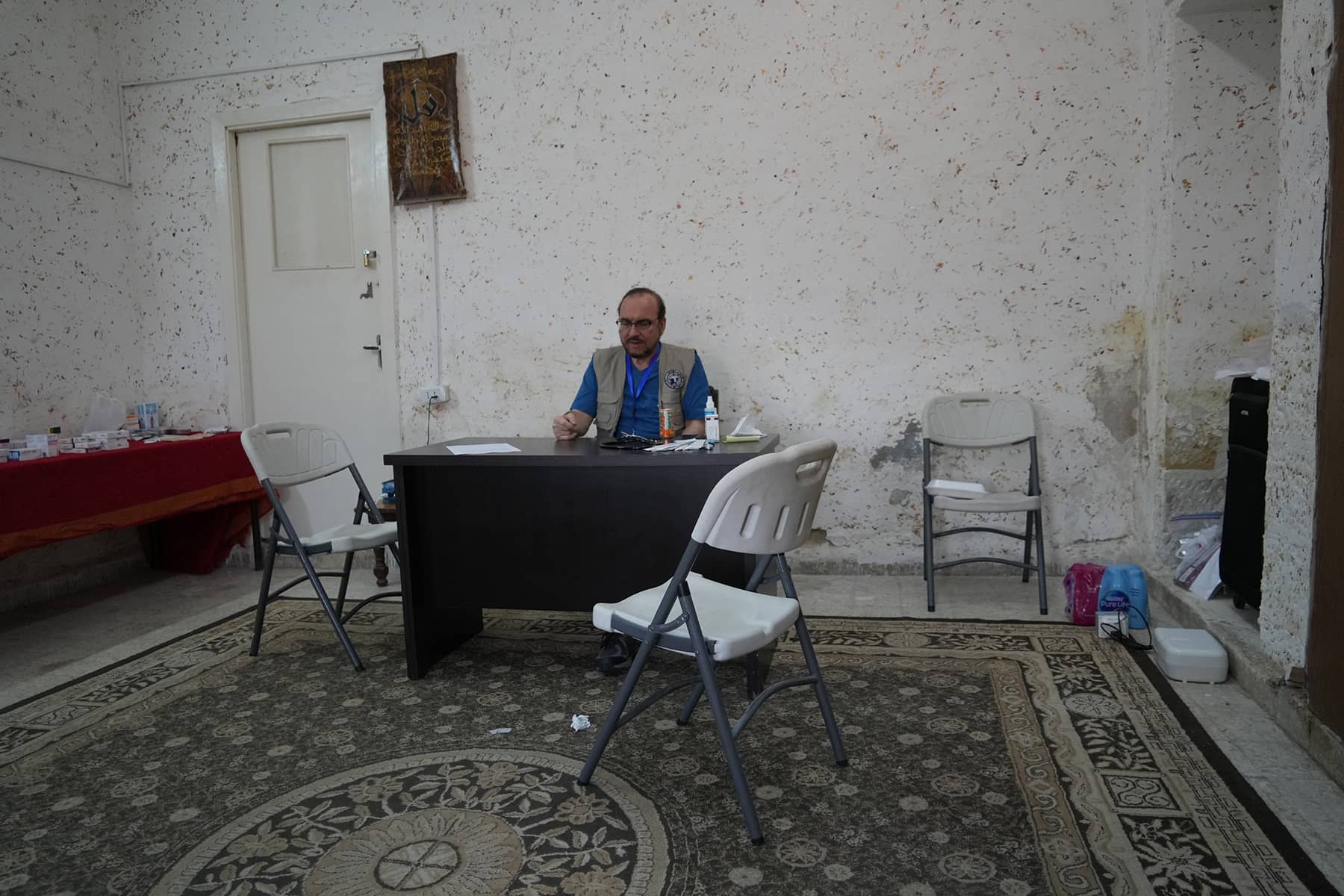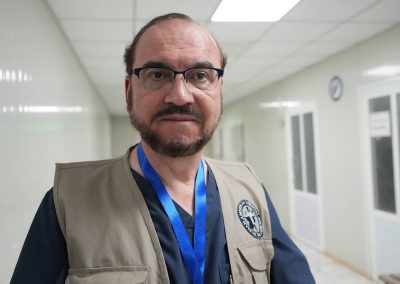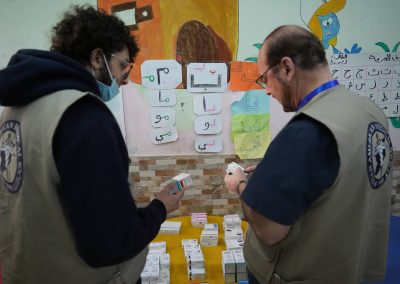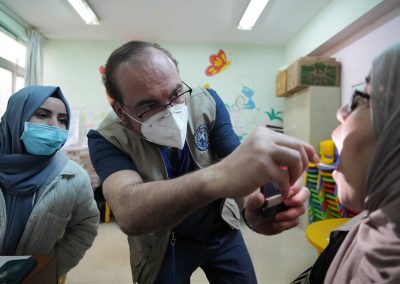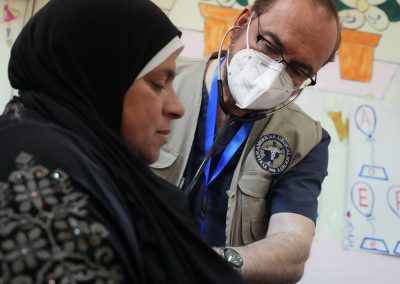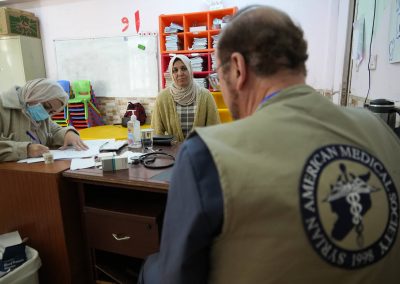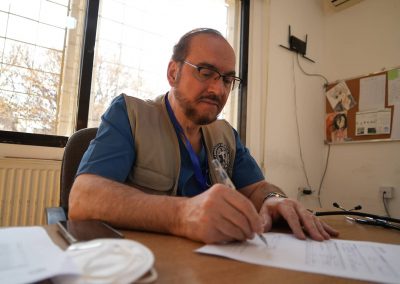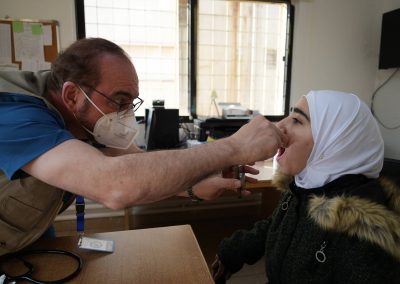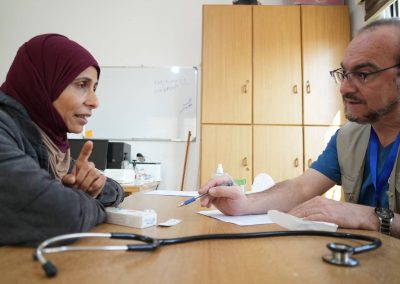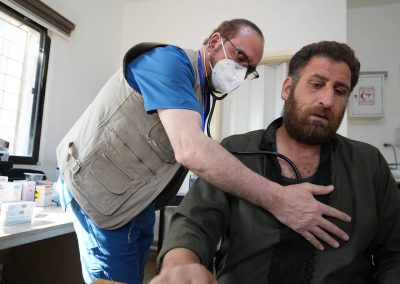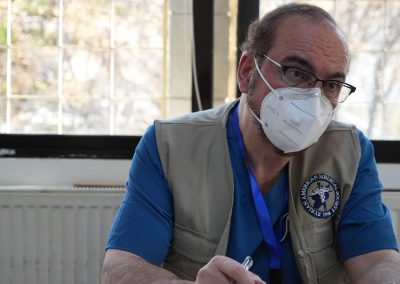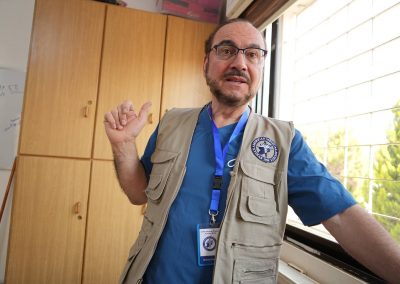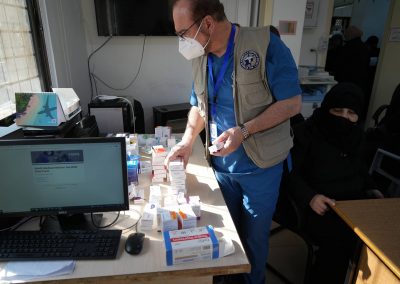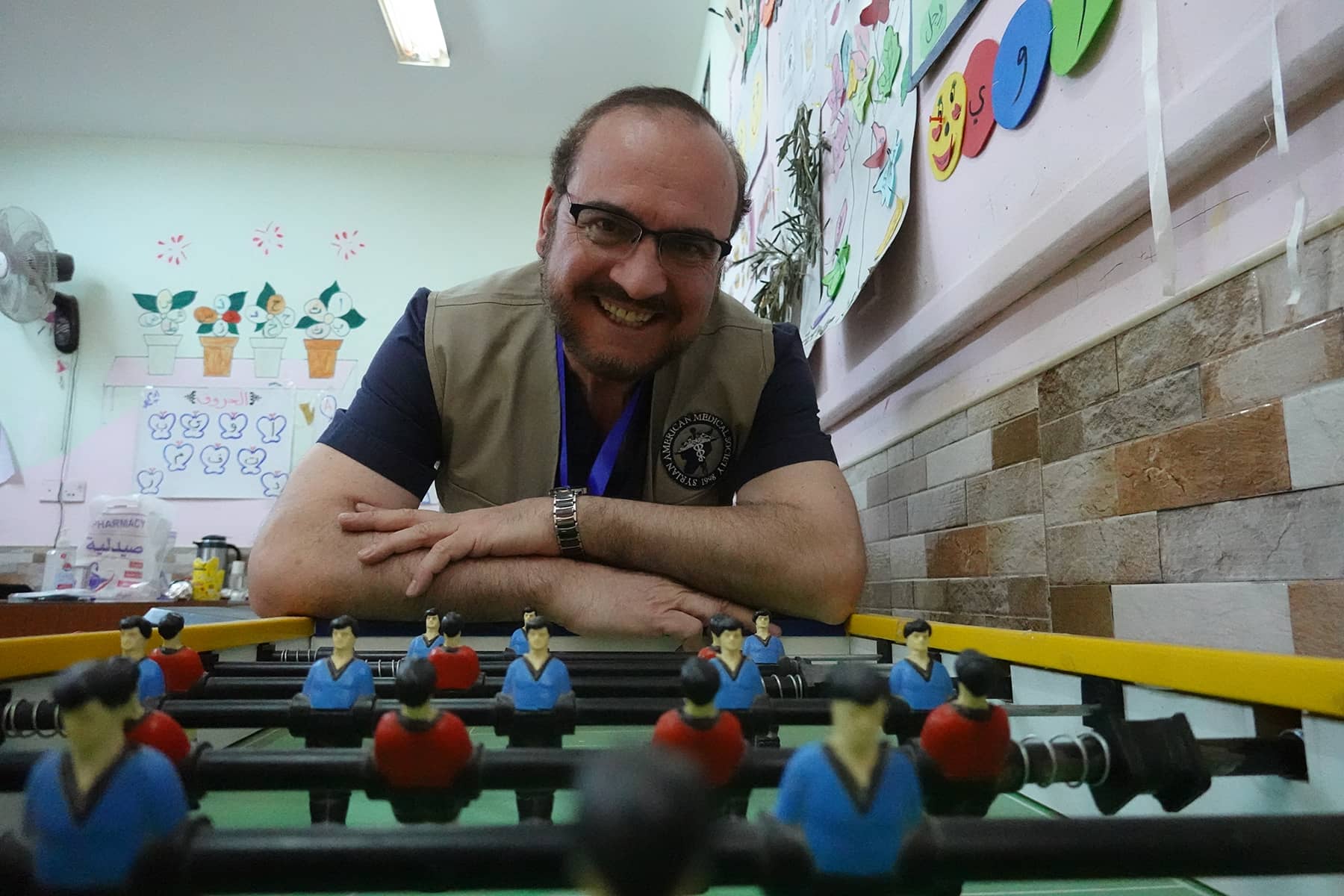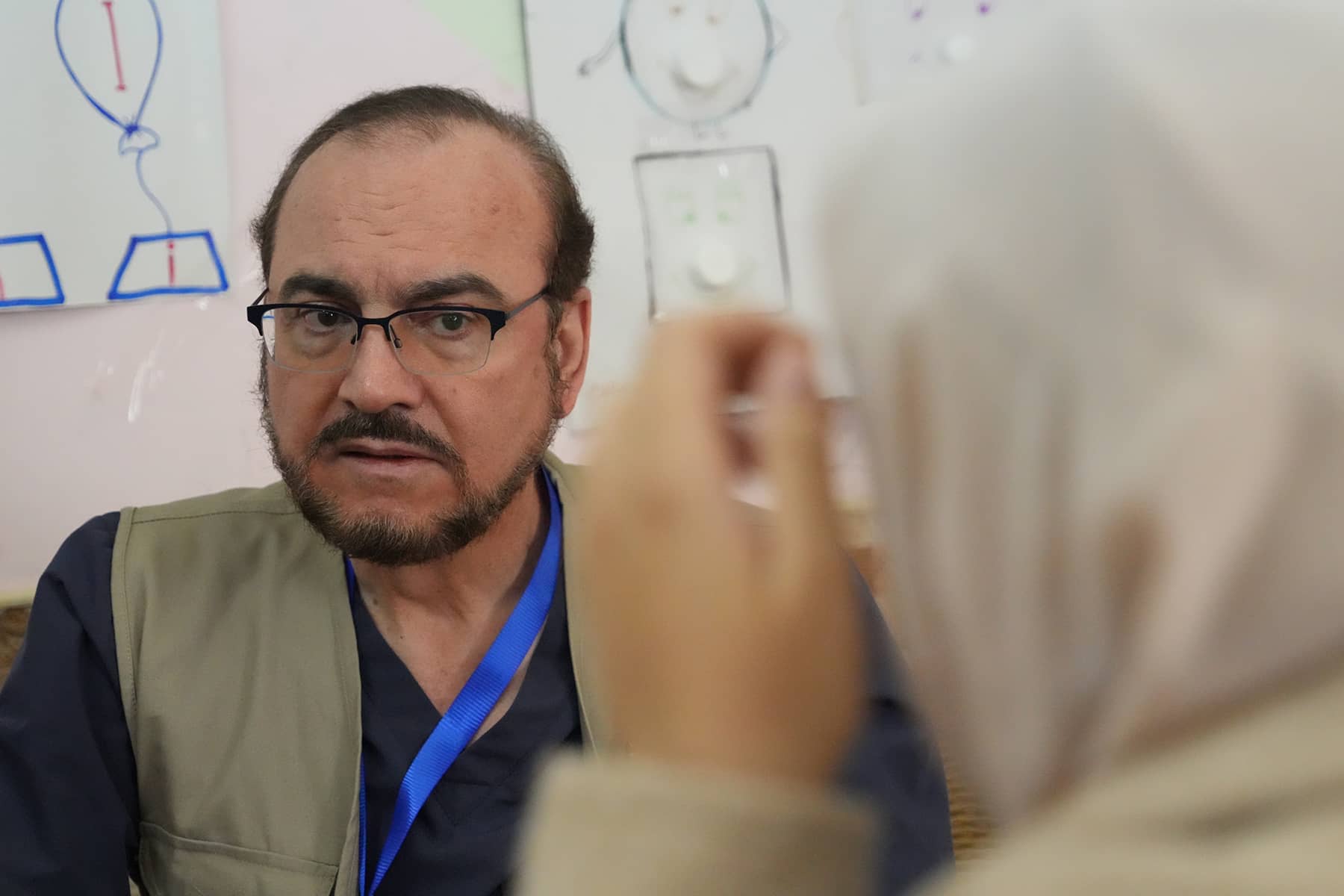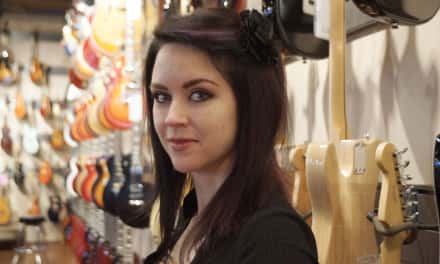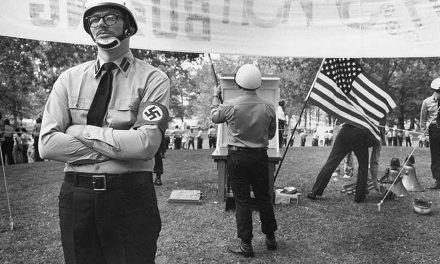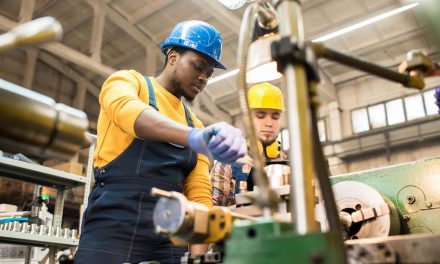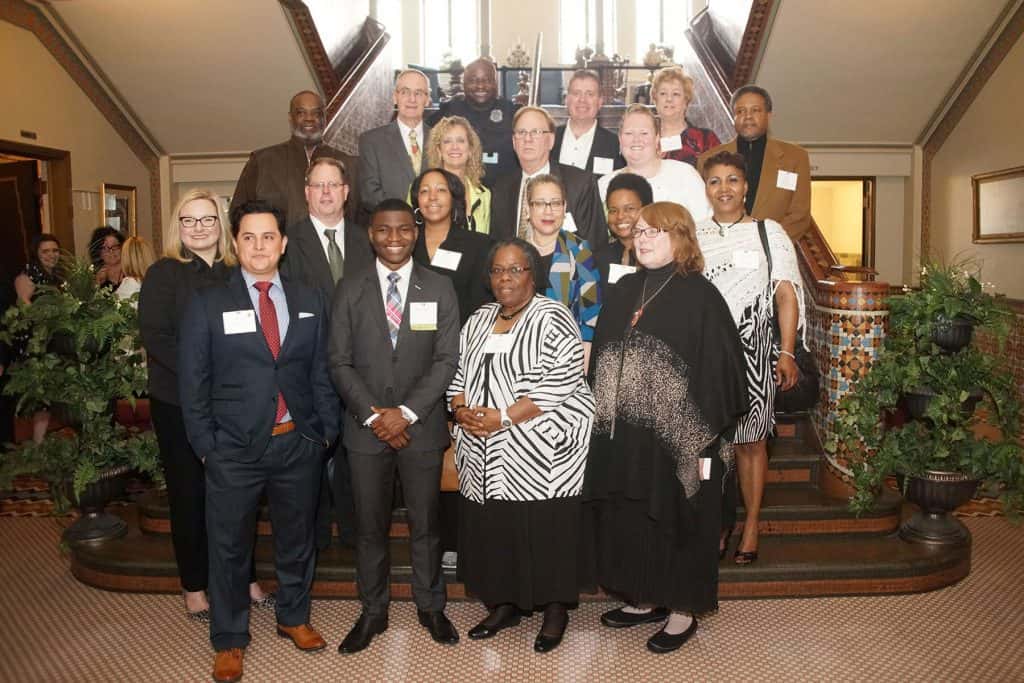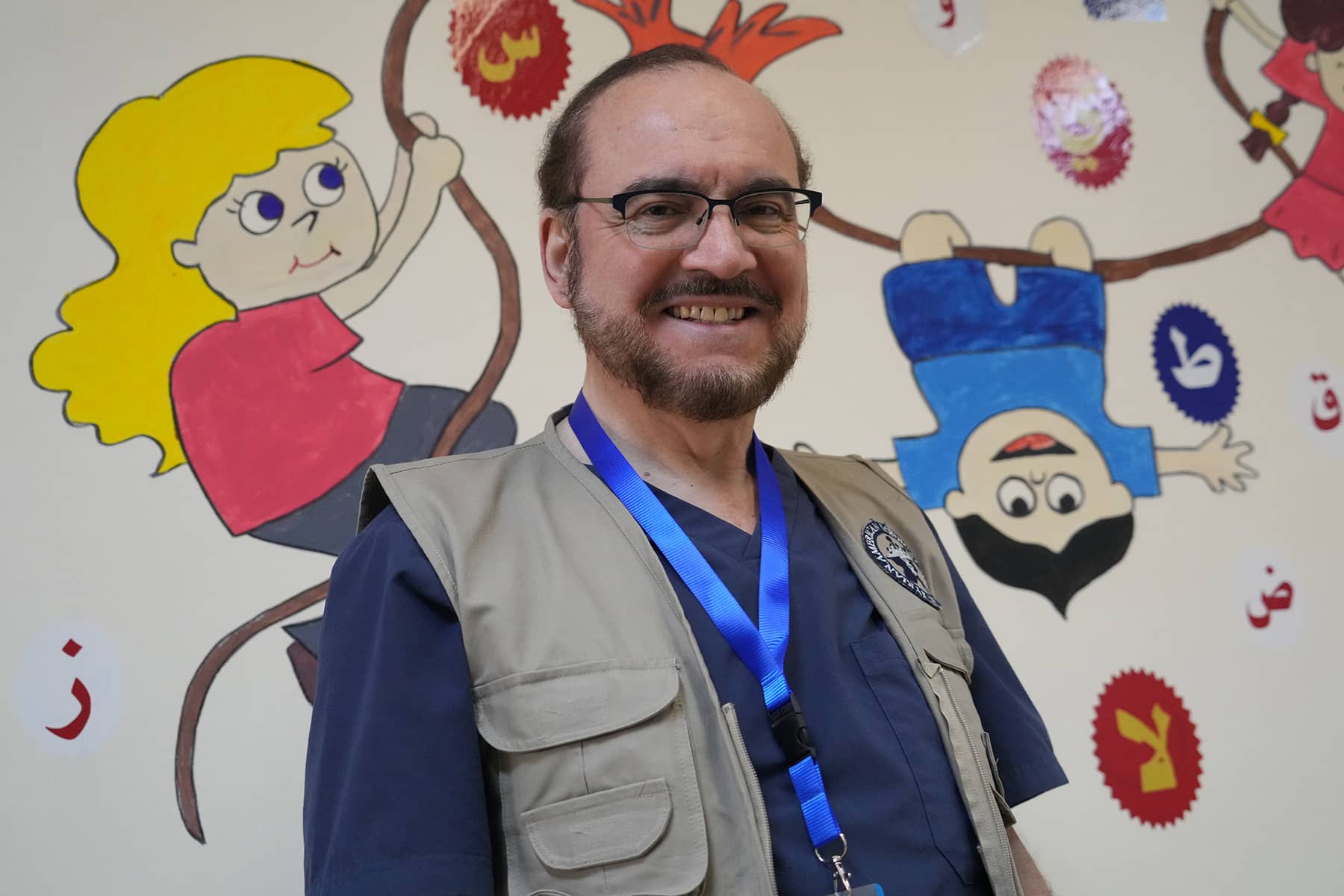
Medical Mission to Jordan: After more than a decade of Civil War in Syria, and continuing conflicts like the unprovoked Russian invasion of Ukraine that further displaced millions of civilians, understanding the longterm conditions that war refugees face remains relevant. But as public attention fades, such topics do not capture headlines today, even as the impact continues to be felt here in Milwaukee. mkeind.com/jordanmedicalmission
Medical professionals spend many years learning, growing, and accomplishing work in their field. For those who were not born in the United States, or are from immigrant families, the path to medical school is often an adventure story in itself. In preparing introductions of the Syrian American Medical Society (SAMS) volunteers who were interviewed for the “Medical Mission to Jordan” series, the depth of what each individual has achieved in their career literally requires a separate article to detail. Being chief of a department, or professor, or research leader, or board chair, are all in addition to the root vocation of their dedicated medical care of adults and pediatric patients. In this context, regardless of position or occupation, all the volunteers of the SAMS Medical Mission arrived in Amman with one purpose, to offer crisis relief to refugees affected by the Syrian Civil War. Exploration of medical backgrounds was explained within each interview to the extent necessary by the participant. While each layer of their medical career and position of responsibility were essential to their mission work in Jordan, those detailed descriptions were actually a distraction in being able to share their story. Who they were “in person” was why they were interviewed. Not who they were “on paper,” which was still immensely impressive but simply too much to unpack in this context.
Q&A with Dr. Waleed S. Najeeb, MD
Milwaukee Independent: How were you inspired to follow a career in the medical field?
Waleed Najeeb: Seeing that healthcare was not available for everyone was what inspired me, because I was one of them. When I was younger, I had something like asthma. And I was not able to see a physician when I needed to. So it started from there. Then other members of my family also had some medical issues, and they could not see a physician either. It was because doctors were not available or were not affordable. So from the second grade, I remember I made a decision that I was going to try my best to be a physician to help people who needed medical attention. From that age, I wanted to be a dedicated physician, to make the right diagnosis, and care for the people who needed treatment.
Milwaukee Independent: What brought you to America, and how did you decide to live in Milwaukee?
Waleed Najeeb: I grew up in Damascus, Syria. I lived in Syria for about 24 years. I went to medical school in Syria and graduated in the top 1% of my class. So I was eligible to leave Syria. I decided to come to the United States, where I did my residency in internal medicine in New York. Then I did pulmonary and sleep subspecialties. The pulmonary was in Huntington, West Virginia, and sleep in Cleveland, Ohio. Then I decided with my wife to come back to Milwaukee, Wisconsin, because she had family there. At that time, I had no family where we were living, so her family became my family.
Milwaukee Independent: What was your hometown like, and what do you remember most about it?
Waleed Najeeb: Damascus, the memory I have of it, was of a very old city. It had a lot of history. I used to think to myself … I am living in one of the oldest city in the whole world. So every time I went to visit certain historic sites, I had some special feelings. I was standing in a place where many people were living, and also visiting, for centuries. It was just amazing to me to be there and see it for myself. Damascus was the center of a great civilization, and it contributed to the development culture and industries across the Middle East.
Milwaukee Independent: How did your experience growing up in Damascus shape the kind of medical doctor you became?
Waleed Najeeb: I wanted to be a physician and my goal was to really excel in the field of medicine, in order to help humanity. But specifically, to really help the people who needed help. That desire stayed with me throughout medical school. It motivated me so much that I was able to leave Syria, before I was required to enter the military service. Syrian men are obligated to join the military, and I was happy to do my part for my country. But we would not be taught any skills, and then just be discharged without any benefit from the experience. It would have basically been a waste of two years of my life. As a doctor, I could have contributed more to my country, and to humanity. It was very difficult to leave Syria then, and almost impossible now. So I am happy and thank God that I achieved my goal. I continue to do my best to keep achieving the purpose of that goal.
Milwaukee Independent: What role does faith play in your work as a physician?
Waleed Najeeb: My faith is Islam. I learned from a young age that doing good is, to me, a must. That is the purpose we are created for on earth, to help other fellow human beings. Whatever profession we choose, we are supposed to excel in it, and use that position to serve others. To me, it is not acceptable to spend time in any field and just be lazy, like an irresponsible person who puts no effort into serving humanity. I believe that everything, every moment we spend, every effort we make, will bring a reward in this life and in the hereafter. And that has also stayed with me throughout my career.
Milwaukee Independent: What do you tell people back in Milwaukee to help them understand how the Syrian crisis began?
Waleed Najeeb: Syria was basically a stable country when I grew up. It had a good educational system – I was educated there, graduated from medical school there. But the problem was, the country did not enjoy much freedom. There was no room to discuss how to make improvements, or what needed to be changed in the political system. There was no freedom of speech, no freedom to have a different political view. So people found a way to revolt and reject the system, and they started demonstrating. However, since there was no approved way to express those ideas, the peaceful efforts were met with a really overwhelming response. It was a very violent response. From that time, conditions just kept getting worse. Now, more than half the country has been completely destroyed. Half of the people are displaced, either outside Syria or inside Syria. A once thriving economy has all but collapsed and people cannot survive. It is hard for Syrians to find the daily minimum of nutrition, or even basic necessities. We all share a hope that things will get better eventually. But right now, the situation is still not stable for Syrians to live in their own country.
Milwaukee Independent: When the crisis in Syria first began, what was your reaction and what did you think would happen?
Waleed Najeeb: When I started hearing about people demonstrating peacefully, I had the feeling that a terrible response was going to happen. So I was not supportive because I thought it would cause more harm than good. I thought change might take time, but we could accomplish that change through the system – rather than provoking the system. People were hungry for a true democracy, they just had no experience with it. In America, our institutions are built on democracy and we still have trouble. So how could a government resistant to change suddenly change? It was not going to happen in Syria. And the more people wanted a better life to happen faster, the more repression they faced. I knew how the government would react, and I felt so bad for the people of Syria at that time. I tried to help their situation as much as I could. I believed positive changes would have come, but more time was needed to be accomplished. I understood it was hard to wait, but the alternative was that everything went so badly. Maybe that was inevitable regardless of what people did.
Milwaukee Independent: Why do you think Ukraine’s situation in 2022 has been so often compared to Syria’s condition in 2011?
Waleed Najeeb: The Syrian government had an overwhelming reaction, but not one they could sustain. So they sought help from Russia and Iran, and that perpetuated the atrocities and the destruction of the country. People fled Syria because of the military help given by the Russians and Iranians. People in Syria are not violent and not armed. The only way they could respond was by leaving the country, or to just stay there and suffer. It is upsetting to many Syrians that the main reason for their suffering was because of the contributions of Russia and Iran. So when Russia launched its unprovoked invasion of Ukraine, Syrians felt bad for Ukrainians because they knew exactly what they were going through. There were some famous news photos in Syria of murals that showed solidarity with Ukraine. We feel very sorry for them. No one understands their suffering better than Syrians.
Milwaukee Independent: How did you become involved with the Syrian American Medical Society (SAMS)?
Waleed Najeeb: SAMS started initially as a social organization, where medical professionals who left Syria could go back to visit and contribute to the educational system in a professional capacity. However, after the Civil War started in 2011, the organization changed completely. They saw the medical need for the people who were displaced in Syria, and the people who had to flee outside Syria and take refuge in border countries like Türkiye, Egypt, Lebanon, Jordan, and as far away as Germany – or other parts of the world. SAMS saw the need, especially for the people who stayed in Syria, because they literally had almost no medical help. Members of the organization donated their time and their wealth to provide health care. However, when SAMS started those efforts they found the need was tremendous. There was no single organization that could handle such a vast need. So they also started working at a political level to communicate with the United Nation. They also reached out to other countries, to see if they could be of help in delivering health care services to displaced Syrians living as refugees outside of Syria. SAMS was very successful with getting the United Nations to help. SAMS was in the right place, at the right time, with the right people to be able to deliver that need. At the Za’atari Refugee Camp in Jordan, SAMS provides more than 50% of the health care needs to a population of around 80,000 people. In other areas like Syria and Türkiye, SAMS is providing almost 75% of the medical services.
Milwaukee Independent: What were you surprised to learn about yourself, or what was your most profound experience after a SAMS mission?
Waleed Najeeb: When I came about five or six years ago, the conflict was getting worse. People really did not know how to react to the tremendous number of refugees flooding into places like Jordan. So they set aside an area in the desert with tents, and provided basics like food and clothing. But that support was only intended to be temporary. So when I visited at that time, it was really overwhelming for me to see people during the winter. Most Americans have the image of the desert as an extremely hot place, but in the winter it is cold with rain and even snow sometimes. The living situation in the camps were never intended for those prolonged conditions. I remember when we walked to get to the tent area, where we were going to deliver health care services like in a clinic, I had to walk in the mud. All my clothes would be muddy, and it was very difficult to get around for just the short time we were there. So imagine people living in that environment day and night, living in those conditions at that time. With the help of SAMS and other humanitarian organizations, we started getting caravans to replace those tents. At least they were a little bit better than tents. Then I would see people standing in lines to replace their tent with a caravan. I entered one of those caravans myself. It was basically just a container made from fiberglass. There was no insulation or padding, so it was not much different just being outside. It was really uncomfortable, but still better than a tent. Now that the situation is better, we see formal structures and cement buildings. From a healthcare perspective, they are better shelters. SAMS also has a clinic building, where specialty care can be provided, in addition to primary care services. SAMS is able to offer cardiology, pulmonology, and ophthalmology care. For example, we just arranged for corneal transplants for adults and children who had some eye injury and could not see. SAMS also had about ten patients who were born deaf and could not hear. So specialists installed Cochlear implants to help children start hearing. They will eventually be able to learn how to speak, and it will change their lives completely. All these efforts, they give us a lot of hope about the amount of change we are making in the lives of refugees. It is also an investment in the future, when these people go on to be productive members of their society.
Milwaukee Independent: Aside from having a heart for charity, why do Syrian Americans feel such a strong obligation to help?
Waleed Najeeb: This really is not unique to just Syrians. I believe people from any country want to help others in need. For an immigrant community, many feel the first responsibility is to their adopted home – and also their original homeland. But there is an obligation to help other human beings who are suffering, regardless of their country or nationality. For myself, I feel the sense of obligation to come and help the Syrian people because that was where I was born. So I have volunteered for three missions with SAMS so far, one in Jordan, one in Lebanon, and now I have returned to Jordan. But I try to participate in at least one medical mission a year, and that is not limited to Syrians. For example, I went to Pakistan when they had the earthquake disaster. I also went to Iraq when sanctions were so harsh that 5,000 children a month under that age of 5-years-old were dying every month. I went there to document what was taking place to raise worldwide awareness, so public opinion could help change the situation. And when Hurricane Katrina hit the United States, I went to New Orleans feeling that same obligation. I spent almost two weeks as a pulmonologist and a physician in Louisiana. So I think many people feel the same way, that they need to help their own people first because they have more obligation to do it. But at the same time, we do not forget other people just because they are not the same nationality or from the same country of origin. They are also human beings, and we are all brothers and sisters in humanity. We need to help each other.
Milwaukee Independent: How can people back home in Milwaukee help Syrian refugees and support SAMS missions?
Waleed Najeeb: They can really help a lot. People in Milwaukee who have the time and ability can come on the next mission. SAMS has had many physicians from Milwaukee on past missions. But even for individuals who are not doctors, like medical students and other medical professionals, there is a lot they can offer by joining a mission. For people who cannot leave their job to be away for a couple weeks, they can help financially by supporting the cost of a mission. SAMS volunteers cover all their travel expenses, so donated funds are used for the purchase of medications and medical supplies. Like the cochlear implants, each one costs $5,000 and we now have ten. We can change the lives of ten children who could not hear or speak. So the more funding we can get, the more help we can offer. And if someone is unable to financially support us, they can at least pray for SAMS and spread the word about the important work we do to others. I am thankful that people in Milwaukee have been very supportive of SAMS. Members of the Syrian American community and the local community, both non-Muslim and non-Syrian, have helped at many levels. Donations collected from Milwaukee were even able to financially cover the cost of a whole SAMS mission. Milwaukee hospitals and drug companies have also donated medical supplies. So I am very thankful to the generous communities in Milwaukee. They are wonderful and we appreciate them.
Milwaukee Independent: Can you help people understand what it means to be a SAMS volunteer and the cost that comes with it?
Waleed Najeeb: When we come here on a mission, although we make a lot of sacrifices to get here, we really feel happy to be here. We always want to do more. It is an energizing experience that makes us eager to come back next year. We see the faces of the people who we have helped, or new people who need our help. When we are able to help them, to give them relief from their suffering or condition, that is the reward. That is the fulfillment of our purpose, to make a difference in their lives. As for my situation being a physician, for example, I have two clinics that I had to close to join this mission. I have employees who are not working, but I still pay their salary. And I have operating costs for the clinic, I continue to pay that overhead. It is a significant expense for a couple weeks. And the travel expenses, it is not cheap to leave from the United States to places in the Middle East like Jordan. And when we have a medical need but there is no budget to cover it, for something like a patient who needs a CAT scan to make a diagnosis, we pay for things like that out of our own pocket. Then there is also time away from family, and that comes with different kinds of costs. I have five children. One of them has special needs for his care. I keep in touch by phone to make arrangements for him, but it is hard not being there. My wife is very supportive and she covers many things, especially in my absence. And I am fortunate to have many friends who can help. It is amazing how many people will step in and assist when needed. So definitely, joining a medical mission is a big sacrifice for us. But when you compare it with the amount of need that is here, you feel that your sacrifice is almost nothing. I am not exaggerating. It is like you are not sacrificing anything, when you compare how fortunate we are to the amount of need there is here.
This editorial feature is one of a multi-part explanatory series about the “Dr. Majdi Omar” SAMS Jordan January 2023 Medical Mission. The journalism project embedded a Milwaukee Independent photojournalist, from January 21 to 26, 2023, with a group of Syrian American doctors from Milwaukee and Chicago. It documented their trip to Jordan and the medical work done at clinic locations like Za’atari Camp, Salt, Jerash, En Albasha and Marej in Amman, and Basma in Ma’adab. Medical Mission to Jordan: A journey from Milwaukee to help Syrian Refugees, shares the personal voices, stories, images, and conditions around those involved in the Syrian American Medical Society (SAMS) mission to Jordan. It also explores the refugee experience, and the intimate connections of local medical professionals, who put their work on hold and left their families behind for a couple weeks to provide healing to others who have endured a generation of trauma.
Series: Medical Mission to Jordan
- Medical Mission to Jordan: Traveling from Milwaukee to document the conditions of displaced Syrians
- Refugees in need: How the Syrian American Medical Society is able to provide vital medical services
- Waleed Najeeb: A spiritual duty to bring specialized relief to those suffering from a decade of war
- Za’atari Refugee Camp: Syrians struggle with a decade of life in the bubble of a temporary shelter
- Jihad Shoshara: How medical advocacy empowers Syrians living with guilt and trauma from a distance
- Deadliest in a decade: Untold numbers remain buried under rubble in Syria after devastating earthquake
- Medical Mission to Jordan: A visual diary from a week with Syrian refugees and SAMS volunteers
- Hazar Jaber: Advocating for oral health so poverty does not make sugar into a poison for children
- Bassel Atassi: Holding onto a family identity after Syria went from a home country to a ghost country
- Medical Mission to Jordan: The faces of Syrian refugees and their health struggles after years of war
- Abrar Qureshi: Finding a "Street of Happiness" among the faded ruins of hope in Za’atari
- Abdullah Chahin: Building a collective purpose to provide medical care as a Syrian in exile
- Zein Barakat: A spirit of volunteerism that nurtures an abundance of compassion, love, and humility
- Hima Humeda: A Syrian college student’s story from childhood heart surgeries to caring for war refugees
- A clarity of vision: Giving displaced Syrian children the ability to see a world full of possibilities

